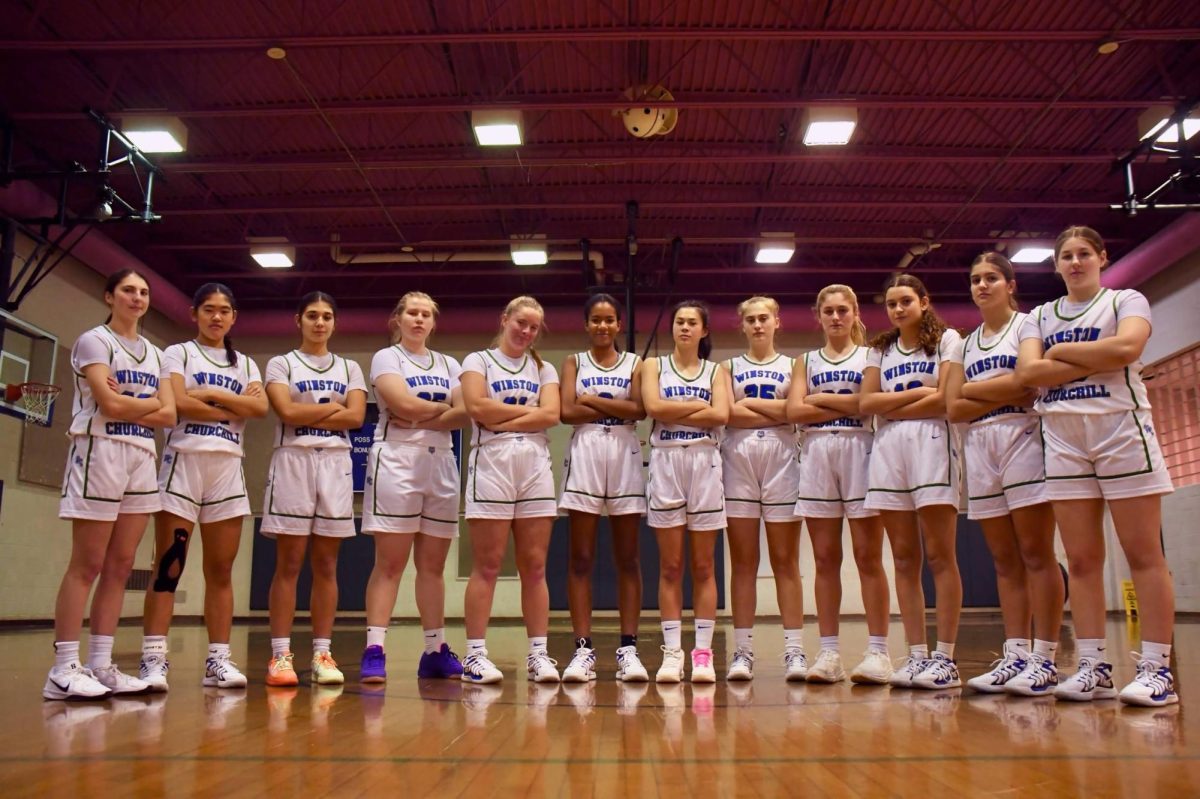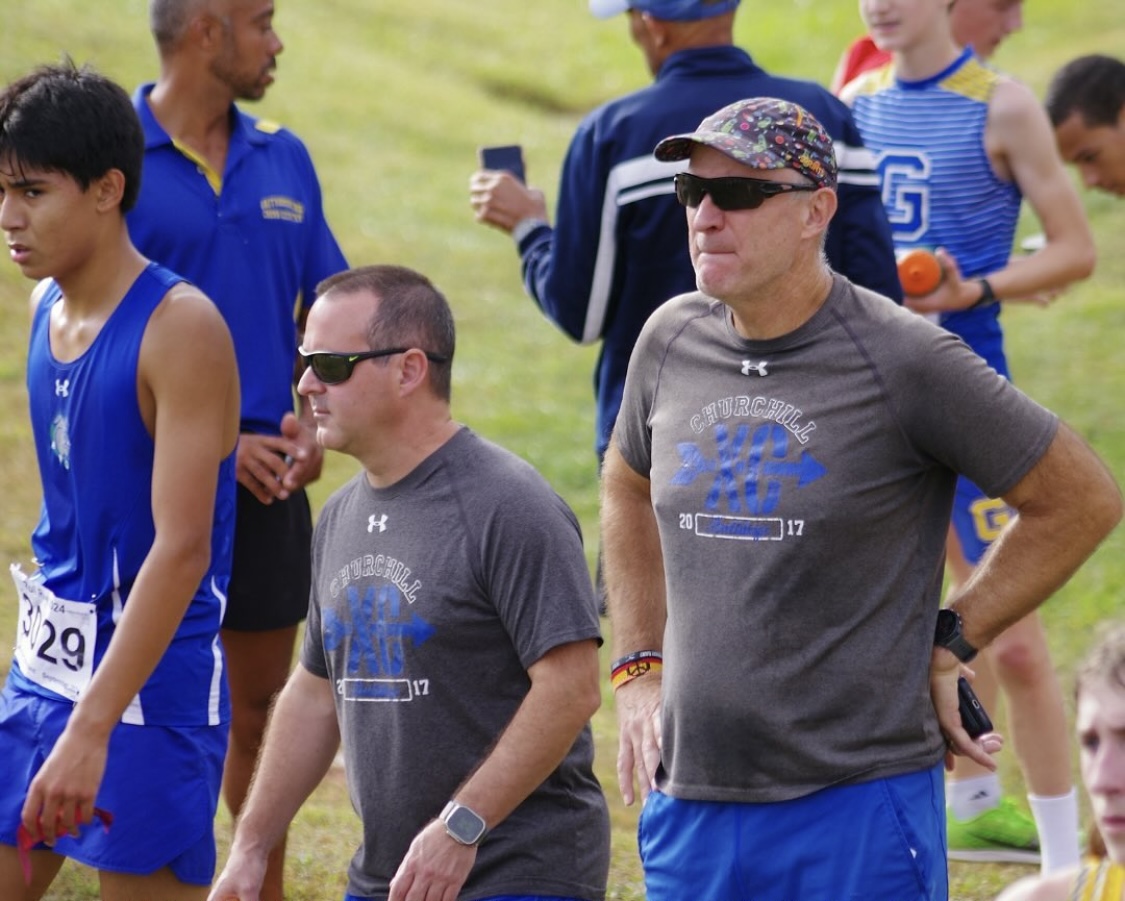Perhaps one of the most critical participants on the field during a sporting event is the one that goes primarily unnoticed, the one who gets no praise or cheers but only boos and arguments: the referee. Yet one tends to realize the importance of something only when it’s gone, which is precisely what happened during the MCPS fall sports season.
According to a 2022 survey conducted by the National Federation of State High School Associations (NFHS), the body that writes the rules of competition for most high school sports in the U.S., approximately 50,000 individuals have stopped officiating since the 2018-19 season, a problem that has continued to increase. While the officials shortage has affected most high school sports, it is primarily affecting football and, by extension, the cornerstone of the fall high school experience: Friday night football games. The county has had to move several games from Friday to Thursday nights to ensure referee availability.
“The biggest example [of the official shortage] is football games being played on Thursday nights,” WCHS athletic director Jesse Smith said. “Each week, the county [now only] has three football games on Friday night in order to make sure that we have at least five officials for each football game.”
Traditionally in the fall, high school weeks end with a football game, a time for students to socialize and enjoy themselves with the freedom of having no school the next day. Thursday night games, however, don’t allow for the same liberties with the looming threat of school the next day. Many students have extracurricular activities, homework and tests to study for or simply don’t realize that the game’s date has been changed, resulting in decreased fan turnout.
“Thursday night games don’t have the same vibes,” WCHS junior Noelle Greer said. “A lot of my friends couldn’t go because they have other things to do on Thursday nights, so there were way fewer people there than on Friday nights. Part of what makes football games so fun is that you meet up with your friends there and hang out with them after the game, but you can’t do that for Thursday night games because there’s school the next day.”
The change to weeknight games also means that the football players themselves have to move around their schedules and accommodate the adjustment. Players are often expected to arrive in advance of games to go over strategy, warm up and run through plays before the two to three-hour event. Now, they have to fit their academics into the day as well.
“Thursday night games are harder to balance with academics,” WCHS junior and Varsity Football player Chris Tran said. “They leave very little time for me to study for Friday tests and get homework done, which adds a lot of stress.”
With the fall season ending, many are wondering what other sports will be heavily impacted by the officials shortage, particularly as the school moves from a football-centric to basketball-centric environment.
“I don’t think there will be an impact in the winter. Winter sports haven’t shown to be hit in the same way those other sports have been. So I believe we’ll be fine there,” Smith said. However, he later added that “football is the biggest, but we’ll see a shortage in softball and baseball next.”
While MCPS is seeing the brunt of the effects now, the countrywide referee shortage has been going on for many years and is caused by a plethora of problems.
“The shortage stems from the retirement of a lot of longtime officials, slow recruitment of new officials and potential officials being turned off due to the abuse that they take from fans, coaches and athletes,” Smith said.
While there is no one solution to the shortage, NFHS and several other sports leaders and organizations are taking steps to minimize the nationwide problem such as increasing pay and improving referee treatment at events. MCPS continues to look for more officials to ensure that future generations can partake in the same athletics and activities that current students enjoy.
“We continue to advertise for these positions along with paying more to the officials for the games they work, but it’s still been tough,” Smith said. “The hope is we can start finding younger officials, especially former students who have recently graduated high school or college.”
The shortage will likely take months, if not years, to remediate; however, organizations such as the NFHS are looking for ways to turn this problem around. In 2022, NFHS held a summit in Indianapolis where leaders “spoke and shared ideas on how to combat the declining numbers of officials.” The primary issue identified during the summit was that the decline in sporting officials is directly linked to the lack of respect and mistreatment they receive. The NFHS is looking for ways to combat this environment and encourages everyone to work towards changing this damaging behavior.
“We are hoping to see results in terms of how officials are treated at events by spectators and in terms of the overall tenor about officials in the media and on social media,” NFHS director of officiating services Dana Pappas said at the second NFHS Officials Consortium at the beginning of 2023. “As we continue these conversations, we have to take the approach that this is a marathon and not a sprint. We are in it for the long haul.”









